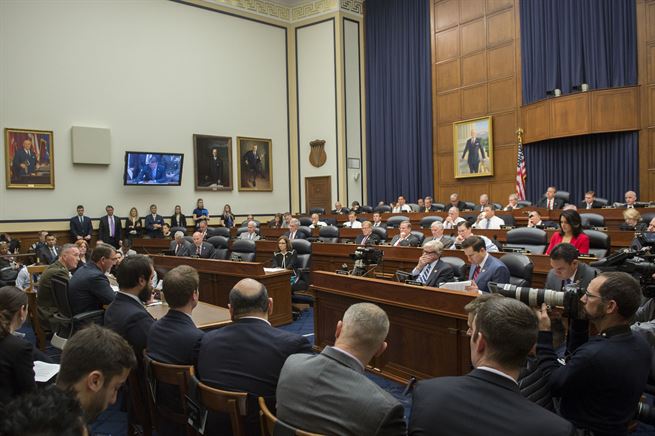Today the U.S. military gave a resounding rebuke to U.S. presidential candidate Donald Trump’s call to shut down the internet in the fight against the Islamic State of Iraq and the Levant (ISIL). Politico reports from a House Armed Services Committee hearing that Acting Assistant Defense Secretary Thomas Atkins testified:
Certainly going after specific nodes to hamper and stop the use of the internet by ISIS is important, but we also have to respect that the privileges and rights of citizens to have access in the internet as a whole and as a country. So, it’s a careful balance, even in Raqqa or Mosul [in Iraq] or anywhere, on how we balance the needs, or the rights, to have access to the internet versus the use of the internet illegally by folks like ISIL.
We strongly agree with Mr. Atkins’ statement at the hearing, and we believe he could go even further. Last year, U.N. and regional officials declared that internet “kill switches” or shutdowns are not justifiable, even in times of conflict. As they stated:
Filtering of content on the internet, using communications ‘kill switches’ (i.e. shutting down entire parts of communications systems), and the physical takeover of broadcasting stations are measures which can never be justified under human rights law.
Internet shutdowns fail to comport with international law, including Article 19 of the International Covenant on Civil and Political Rights, because they are not a “necessary” interference with freedom of expression. Rather, shutdowns disproportionately restrict human rights.
Mr. Atkin’s statement appears consistent with the U.S. government designation of “internet freedom” as a foreign policy priority, and U.S. Secretary of State John Kerry’s recent declaration that the internet should remain “open and secure,” with human rights protected and respected online just as they are offline. Atkins’ statement also demonstrates understanding of the interoperable nature of the internet, an ecosystem where even well-intentioned efforts to restrict access in a targeted way can infringe human rights.
Importantly, opposing shutdowns avoids setting a dangerous precedent. The U.S. National Security Agency has already taken Syria offline by mistake; to intentionally disrupt internet access across international borders would be to treat civilians and their rights as collateral damage, to be disregarded in the pursuit of military ends. That’s a foolish policy that could have deadly consequences in future conflicts, far beyond Syria. Civilians in combat zones are among those most in need of access to critical information that the internet can provide, such as warnings about potential attacks or details about a means of escape.
We’ve seen that internet shutdowns are early warning mechanisms for human rights violations. They harm everyone: journalists, demonstrators, human rights defenders, businesses, educators, and people who need emergency services.
This week the government of Algeria shut down communications to stop students from cheating on school exams. And in Ghana, a police spokesperson refused to back down from a plan to shut off social media during the country’s November election.
Unfortunately, these are just two examples of ways that internet shutdowns violate rights and disrupt people’s lives. These shutdowns are a blunt-force instrument that wreak havoc on communities and economies, leaving massive human rights violations in their wake. They are a means never justified by their ends.
That’s why we’re fighting to stop them for good through the #KeepitOn campaign, which now has support from more than 80 organizations in 41 countries. We could use your help. You can fight internet shutdowns by joining our pledge here and, if you represent an organization, you can sign up to join the #KeepItOn campaign at https://accessnow.demo.cshp.co/keepiton. Finally, if you experience a shutdown or hear about one, you can report it by emailing us at shutdowns@accessnow.org.
